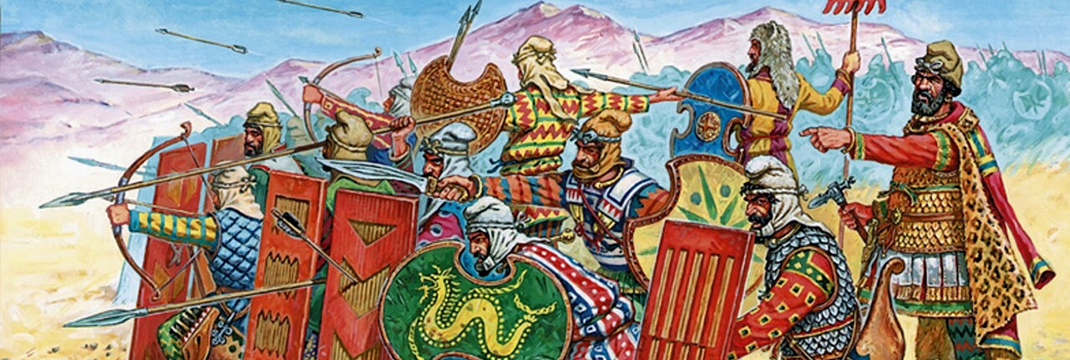
In recent times, it was rather common to find great nations engaging in wars and battles. Apparently, most nations fought for political power and control in order to spread and expand their emperor. As a matter of fact, weak society or minority tribes almost didn’t have their own word. Mostly, the mentioned weak tribes become the target of strong and armed tribes. Despite the fact that war enabled few individuals to expand their wealth, kingdom, and empire, it had a more detrimental effect on the nation. To start with, the war led to the loss of valuable property, many individuals were robbed of their properties that, in its turn, led to deep and unresolved poverty. Secondly, war has led to the loss of life, a thousand and millions of innocent citizens were reported to die in war (Souza 42).
Thirdly, the war also led to the displacement of many citizens, this can be confirmed by the presence of several refugee camps. Due to these adverse effects, many nongovernmental organizations have been set up with a mission of preaching peace among nations and individuals. The question which still remains unanswered is what passion nations or individuals enjoy in engaging in war. As a matter of fact, the best weapon is peace; it is the thing that brings nations together. It is sad to note that while some nations are preaching peace, the other disloyal nations engage themselves in the innovation of dangerous weapons. For the peace mission to succeed, the primary source of war must be found. If that’s the case, it is the actual remedy, which can bring about peace in the entire world. The paper endeavors to highlight the history of the Persian war. The paper also sheds light on the cultural impact of the Persian war.
The Persians
Persians majorly speak the Greek and Indo- European language, which is a bit far from English. The actual homeland for Persians stretches in the southern part of Iran. Typically, most of the great nations had a leader, who was in charge of providing direction and also entitled to the major decision of the community. Similarly, the Persians had a leader, Cyrus the Great, who began to lead and guide Persians from 559 BC. Generally, Cyrus was great, just, an able leader, he was passionate for Persians.
He managed to build a strong and extensive empire; the empire included Mesopotamia, which was to the south, and Great cities in Asia Minor (Ionia). As mentioned earlier, Cyrus was a great leader; it is evident by his capability to form a strong empire. The fact that still revives interest is that the empire comprises of people with different languages, cultures, and religions. Needless to say, it vividly portrayed his unity skills (Cassin 24). It is worth noting that a level of autonomy was granted to subjects that actually reduced resistance, leading to the success of the emperor. The Persians were endowed with a talent that was their rich culture. For instance, the community was good at art and architecture. It is necessary to say the Persians had a religion called Zoroastrianism; the religion is still practiced to date. Similarly, scholars reported that Zoroastrianism had a great impact on the Greeks.
The Greek on the Persians
The Greek termed their neighbors as barbarians; according to the Greeks, the communities which didn’t speak Greek were called barbarians. The interesting fact is that the barbarians (Persians) were recognized by the Greeks as achievers due to their artwork and great empire. Additionally, barbarians were viewed as civilized people due to the kind of lifestyle which they practiced. On the contrary, the people perceived the culture of the Greeks as strange and inferior, as compared to the culture of the Persians.
Ionian revolt
In the 6th century, the Persian emperor made the Greek cities of the Ionians their subjects. However, this was followed by resistance and revolt of many cities. The revolt started in 449 BC. Ionians sought support from both Sparta and Athens, as a way of defending their city. Furthermore, the Athenians are culturally connected with the Ionians; due to this fact, the Athenians sent some support to Ionians. Reportedly, the revolt had some progress. Sardis, which is a regional capital, was burnt. On the other hand, Miletus city, where the leader of the revolt was residing was also destroyed. The Persians were unhappy by the destruction of Sardis, while the Greeks of the mainland were distressed by the destruction of Miletus. As a result, the collision between the two increased.
Marathon 490 BC
Persians didn’t take kindly the support of Athens, and they were filled with a passion for revenge. Darius, king of the Persians sent his troop to attack the Athenians. In addition to this, the Athenians had more sophisticated weapons and it was difficult to trounce them in a battle. Reportedly, an army of the Persians was met by Athenians at a place Marathon, which is located out of Athens. It is amazing the Athenians defeated the Persian army in the battle; this was due to well-equipped weapons, possessed by the Athenians.
Themistocles and triremes
Xerxes becomes the king after his father Darius. The son was upset by the Athenians defeat and planned to take revenge on the Athenians. Meanwhile, there was a revolt in Egypt, which distracted Xerxes. Apart from this, Themistocles who was a statesman in Athens persuaded the Athenians to use the wealth to invest in Triremes; Triremes was the most powerful and strong worship in the world. Reportedly, from this point, Athenians came to possess the most and powerful army in the Greek world.
Thermopylae 480 BC
In 481 BC, Xerxes ordered the Greek cities to accept his rule. Reportedly, many cities accepted the demand, especially the northern Greek cities, which were close to Persian territory. In 480 BC, the Greeks attempted to stop the Persians at Thermopylae (Mikalson 69). However, the King of Sparta, Leonidas, realized the Persians had exceeded their number and he quickly sent off Greek troops leaving little by little. The war took several days; eventually, the Spartans were killed and lost the battle. Similarly, a good number of Xerxes’ troops were killed.
Salamis 480 BC
Things were falling against the Greeks. For a start, the northern cities of Greece that Persians had captured lost interest in defending their citizens, who were in the south. Secondly, Peloponnesian cities retreated from defending the citizens. Athens realized it couldn’t face the Persian troops; Persian troops were more skillful and possessed better weapons than the Greek ones. For this reason, Athens moved its people to the south and set its navy to island Salamis. The Peloponnese wanted to retreat to the south, where they thought attacking the Persians would have been much easier. Consequently, a skillful and wise Athenian leader, Themistocles, managed to unite and keep all the Greek troops at the Salamis, this was very hard as most of the troops wanted to go back to defend their cities. Themistocles was very skillful; he made the situation look like the Greeks were retreating. Consequently, this encouraged the Persian troops to attack and in the process, the Persian navy was crushed.
Plataea 479 BC
Despite the Persian navy crush, the Persian land forces were still intact. Reportedly, Xerxes feared that the Greek navy could cut him off; thus, he moved back to Asia. Notably, he left General in charge of all the land armies (Hanson 12). What is more, the massive land army of the Persians moved north of Athens, which is close to Thebes. Notably, Thebes is among the cities that Persians had conquered. The Persian threat in mainland Greece was reduced, as many allied Greek forces having troops, the troops came from almost 31 cities and trounced the Persian’s host, ending the Persian threat.
There are several reasons why the Persians lost terribly the war. To start with, the Persians spoke different languages, for this reason, it became difficult to unite the troops. As a matter of fact, language acts as a unifying factor among communities and nations. Seemingly, the Persian troops were inadequate of this unifying factor. Prevalently, the Persians have a unique culture endowed with a different language. For this reason, it was hard and difficult to unify the troop and win the battle. The language barrier always poses a challenge to the success of any battle.
Secondly, the Persian troops were so huge; as a result, controlling and coordination became a challenge. Typically, it is easy to manage and control a small troop as compared to a big one. Reportedly, Xerxes had a tough time organizing and keeping his troops intact. Contrary to this, the Greeks troops were small in number, this enabled the Themistocles to control and monitor the progressive of Athenians troops easily. Besides, small troops enable the leader to be close to his army, unlike the large troops which possess disconnect between the leader and the troops.
Thirdly, the Persians took a risk, when they faced the Greeks to their territory. Apparently, it becomes difficult to win a battle in areas which are far from your territory. The Persians fought, Greeks mostly fought at the area of their advantage. For instance, at Marathon the Athenians had more advantages, as compared to the Persians, this led to Persian defeat. Advisedly, the Persian troops would have only attacked in the areas or places that were to their advantage.
Fourthly, the Greek had a similar or the same language. For this reason, the Greeks became more united and close to each other, this made them fight as a family. Typically, for a victory to be achieved in any war, there must be a unifying factor. As a matter of fact, language is the most unifying factor, since it brings cohesiveness within the troops and enables the troops to easily communicate during the war. In fact, Themistocles took advantage of language to unify and keep his troops intact.
Fifthly, the Greeks coaxed the Persians to fight them at narrow areas. Since the number of Persian troops outnumbered the Greeks, it would have been hard for the Greeks’ army to defeat the Persian troops (Wallinga 65). For this reason, the Greeks attracted the Persians to fight them in narrow areas. Moreover, narrow areas could not accommodate the huge troops of the Persians. For instance, it was difficult for the Persians to win battles in narrow areas such as Thermopylae and Salamis.
Sixthly, the advisors of Xerxes didn’t impart king with what was happening in the group. Seemingly, the advisers gave information which only intended to please him. For this reason, Xerxes became reluctant to know the situation in his army. Furthermore, the information provided could not enable him to identify his weakness and strength. As a matter of fact, it is difficult to win a battle without the right information. Xerxes advisors led to the Persians defeat failing to provide the right information. Similarly, Xerxes only preferred information that pleased him, for this reason, advisors feared him; unlike Themistocles, who was close to his troops and got the right information from those whom he relied upon.
Invite your friends and get bonus from each order they
have made!
The Persian troops were big. For this reason, it was very difficult to constantly supply it with weapons. Reportedly, Xerxes faced the inability of supplying his troops with fighting weapons. Contrary to this, the Greek troops, which were small, constantly received the fighting equipment (Hanson 16). For this reason, it was difficult for Persian troops to face the Greeks who had a constant supply of weapons. To make the situation worse, Xerxes was arrogant and blinded by the huge troops, which the Persians possessed. In addition, the leader knew communities feared him and none could get the courage of facing him in the battle. For this reason, Xerxes didn’t realize his weaknesses and strengths were leading to his defeat.
Lastly, the Greeks faced poverty; this became their strength, in comparison with the Persians who got used to a luxurious life. Poverty built a strong bond among Greeks, enabling them to fight strongly and bitterly. Not to mention the fact that the Greeks possessed wisdom and were determined to win, despite the large troops of the Persians. On the contrary, the Persians had a soft and a luxurious life making them retreat easily.
In view of the aforesaid, any war has a tremendous effect on the population. Apparently, the aftermath of war can be positive or negative. Generally, war comes with more demerits than merits. To start with, wars have led to the loss of many lives. Many troops and innocent citizen have lost their lives in the process of the war. As a result, families lose the ones they love and care for. Additionally, children are left without their parents; women are left without their husbands. The war also has a great effect on the economy; for instance, several properties are lost in the war. Reportedly, most of the countries that engage in war have faced challenges of unemployment and their currency weakens against United States dollars. Secondly, wars have caused a lot of social problems, for instance, the enmity between communities. Additionally, people have lost valuable property and life due to war. Some families have been displaced leading; this lowers the standard of living of the victims which are displaced. On the other hand, sometimes war reconciles involved communities and they make friends and this leads to peace.
On the other hand, the Great Persian war had also similar effects. To start with, several fighters lost their lives. For instance, both the troops of the Greeks and Persians lost their lives. Despite the number of the Persians, their troops were killed. Reportedly, at Thermopylae, the Spartans were killed to the last man (Souza 36). Additionally, at Marathon, the troops of the Persians were killed. Similarly, several properties were also lost during the battle. For instance, religious capital was burnt down, this lead to a big loss. Also, Miletus city was also destroyed.
The Persian war brought the city freedom and democracy. The Greeks were free to express their feeling on account of the governance. Similarly, democratic space was created. For instance, Athens expressed how they were supposed to be governed. Initially, the city was occupied by the Persian emperor. The Athenians established empires, which practiced democracy. For this reason, the Greek population was saved from the Persians. However, the Xerxes administration failed to administer democracy in Greece. As a result, the Greeks’ revolt led to the Great Persian War.
Reportedly, after the war, there was a great presence of unity. Both the communities embraced each other, despite their differences in culture, religion, and language. The Athenian empire played a role in bringing the Greeks together that was leading to unity, while the Persians empire was only focused on expanding its exterior. Historically, Greece has a variety of cultures and unity of the populations that is a tough responsibility.

Top Writer Your order will be assigned to the most experienced writer in the relevant discipline. The highly demanded expert, one of our top 10 writers with the highest rate among the customers.
Hire a top writer for $4.40Therefore, Athens became wealthy; this was brought about by the victory they got in the war. Spartans tried to fight the Persian but they were defeated since it could not fight a large number of Persian troops (Mikalson 81). On the other hand, Athenians mobilized their troops and used their skills appropriately. Consequently, Athenians managed to defeat the Persians. The victory brought the Athenians wealth, the leaders of the Athenians expanded their emperor and the Greeks were requested to pay tribute to the emperor. Thus, it led to the creation of a wealthy empire. It is worth noting the Spartans were not happy with the wealth possessed by Athenians. As a result of wealth, Greece city was developed, and more cities were developed.
Reportedly, Athens became a center of culture and political power. As a result, Athens became Golden age; this also created a lot of wealth for Greece, as more cities developed. Reportedly, other activities such as architecture were established, this led to the development of architectural houses. In addition, such artworks as sculpture were created, reflecting the population of the great leaders that diligently ruled over the nation. Furthermore, theatres also emerged, this attracted many populations and it became a source of income to the Athenian emperor.
The Spartans were not happy with the development, which took place in Greece and wanted to attack the Athenians due to their jealousy. The Persians later financed the Spartans in order to fight the wealthy Athenians (Wallinga 61). Generally, the aftermath of the Persians war led to the development of the empire; it enabled the Athenians to create a strong and stable emperor. In addition, the social relationship between the Greeks was improved, and both viewed each other as a brother. Therefore, the relationship between the Greeks and the Spartans widened, since the Spartans were jealous. Similarly, after the war, the relationship between the Greeks and Persians also widened.
In conclusion, the Persian war took place in Greece. Reportedly, the war took place in Marathon and Salamis. The war started, when the Persian emperor made the Great Greek city of Ionian a part of his subject. There was a revolt by some cities and in the process, the Athenians supported the Ionians. At first, the Darius king of the Persians was unhappy with Athens; he, therefore, developed war of revenge on the Athenians. It is significant to note that the Athenians defeated the Persians troops, which was led by Xerxes. Later, the Persian troops fought Spartans at Thermopylae, in which the Persians troops defeated the Spartans. They later fought with the Athenians, and Themistocles defeated the Persians troops. The war brought several effects on Greece. To start with, many lives were lost, for instance, both troops of the Persians and the Greeks died. In addition, unity, freedom, and democracy were established in Greece. The Athenians became wealthy and established a strong and stable empire. In addition, Golden age enabled Athens to be rich leading to the development of architecture, sculpture, and theatre. As a result of this, Greece became a great nation.



